Hi Susun,
Can you tell me your thoughts on cooked foods vs. raw? I have been getting much more into the whole raw foods craze lately but still I encounter so many differing views on which provides vitamins and minerals that are more readily available to the body. So for now, I am eating a combination of both cooked and raw foods to cover the whole gamut.
Susun’s response:
Which is better: cooked food or raw? I asked myself this very question several years ago. Taking nothing for granted or gospel, I set out to find out for myself the answer to this important question.
First, I asked, what is meant by “raw food” and what is meant by “cooked food?” One cannot simply say that raw is uncooked, for there are raw food “cookbooks.” Nor is cooking simply the application of heat through boiling, baking, or frying, as I soon discovered. Ripening itself is one form of natural cooking; others are described later.
Second, I wondered, what did my ancestors eat? And was it raw or cooked?
Third, I questioned, how do enzymes in foods affect digestion and health?
And fourth, I attempted to sum it up, is there an advantage to cooking?
The answers weren’t as simple as one might suspect, however. The answers to these questions combine in interesting ways, and open up other questions in their answering.
To begin with the second question: Our most primitive ancestors, those who lived several million years ago, most likely ate raw food. The majority of what they ate was animal protein: muscle meats, organ meats, eggs, and insects.
Present day examples of peoples who primarily eat raw animal protein include the Inuit of the far North and the Masai of Africa. Both groups are known for their health and freedom from disease.
Research done by Dr. Pottenger in the mid-twentieth century revealed that raw meat and milk contained enzymes necessary for digestion. He showed that heat deactivated their enzymes (see WestonAPrice.org). His conclusion was that raw meat, fish, milk and eggs provide more nutrients and are more easily digested.
This is not true of plant foods, however. Vegetables and fruits do contain enzymes—if picked fully ripe—but their enzymes have no function in their own digestion, although papaya, pineapple, and kiwi fruit contain enzymes that digest meat (An interesting aside—these fruits are tropical fruits that help digest and destroy, in the digestive systems of people and animals, the parasites that are found in those regions, and only incidentally digest other kinds of meat). Many plant enzymes interfere with digestion, so our bodies destroy them.
Cooked food was the preference of most of our ancestors. Archaeologists have found evidence of fire in sites occupied by hominids as far back as a million years ago, but cannot say exactly when we began to use fire to cook food.
Certainly by about ten thousand years ago, when cultivation of grains and beans—hard foods which absolutely require cooking—became widespread, our ancestors were regularly and routinely cooking their food.
Most current aboriginal people also cook their food; in New Zealand, for instance, I found the Maori jealously guarding natural hot pools used to cook their food.
Is there an advantage to cooking? It depends on how we cook—or, more basically, how we define cooking—and whether we are eating animals or plants. Animal cells are surrounded by a membrane. This thin membrane is easily dissolved by digestive juices, releasing the nutrients stored in the cell. Fast, high-heat cooking will toughen these membranes, thus slowing digestion and impairing nutrient uptake.
For an illustration of this, think of how tough an overcooked piece of meat can become; chewing, an important part of digestion, is much more difficult. Slow, low-heat cooking dissolves the membrane, making digestion and nutrient uptake much easier. If the idea of raw meat turns your stomach, eat soups and stews instead.
Plant cells are surrounded by a wall. This wall is designed to resist breakage and to protect the stored nutrition in plant cells. Digestive juices act on the cell walls of plants little if at all; take a look in the toilet the day after next time you eat corn on the cob to see how true this is. Cooking, which can be expanded to include her sisters freezing, drying, sprouting, fermenting, and preserving in oil, breaks the cell wall and is necessary to liberate nutrients from plant cells. Cooked vegetables and fruits, grains, and beans provide more nutrients and are more easily digested than raw ones.
A Haiku verse that could sum this up is:
Chewing what is raw,
how can one smile?
Muscles of the jaw too tense.
A macrobiotic diet, the only vegetarian diet shown to put cancer in remission, consists of cooked food exclusively. Around the world, well-cooked meat broths—think chicken soup—are the food of choice for convalescents.
Cooked plants are far more nourishing than raw plants, whether we look at vegetables, fruits, nuts, grains, or pulses (beans). Cooking not only breaks the cell wall, liberating minerals to our bodies, it actually enhances and activates many vitamins.
This is true especially of the carotenes, used to make vitamin A, and other antioxidants in plants. Research found that the longer the corn is cooked and the hotter the temperature, the greater the amount of antioxidants in the corn.
This also applies to vitamin C. A baked potato contains far more vitamin C than a raw potato. And sauerkraut (cabbage cooked by fermentation) contains up to ten times as much vitamin C as raw cabbage.
Some vitamins do leach into cooking water. Cooking with little or no water (for instance, steaming or braising) reduces vitamin loss in vegetables such as broccoli from 97% to 11%.
Note, however, that the vitamins aren’t lost or destroyed, but merely transferred to the cooking water. Using that water for soup stock, or drinking it, insures that you ingest all the nutrients, and in a highly absorbable form.
Transferring nutrients into water, such as by making nourishing herbal infusions and healing soups, and then ingesting them is far more effective, in my experience, than wheat grass juice, green drinks, or any kind of nutritional supplement. It is, in fact, one of the best ways to optimally nourish oneself that I have found in three decades of paying attention to health.
Even if some vitamins are lost in cooking, people absorb more of what is there from cooked foods. Several recent studies measured vitamin levels in the blood after eating raw and cooked vegetables.
“Subjects who ate cooked veggies absorbed four to five times more nutrients than those who ate raw ones,” reported researchers at the Institute of Food Research in 2003.
There is no simple answer to the question “raw or cooked?” But for simplicity’s sake, I say, eat your food cooked. This is especially the case if you choose to eat a diet high in whole grains, beans, nuts, vegetables, and fruit. That’s the way I eat, so I cook most of my food. But I keep a herd of dairy goats so I can have raw milk, raw milk cheese, and raw milk yogurt. I do enjoy raw meat and raw fish on occasion, but more often slow cook my goat into barbeque, a special kind of healing “soup” I learned to make in Texas.
The cook dances with the element fire. The cook stirs the cauldron. The cook transforms the parts and turns them into our whole. Blessings on the cook. Praise to the cook. May your food be well cooked.
Green blessings, Susun Weed
photo: Wise Woman Spiral © iStockphoto.com / Chuck Spidell


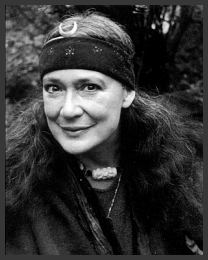

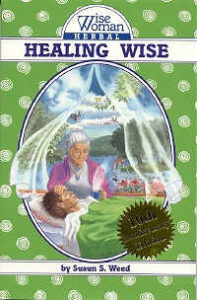
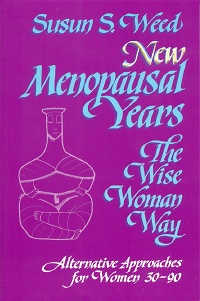
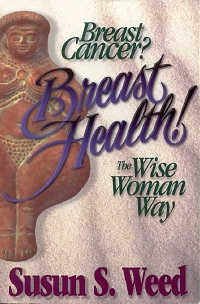
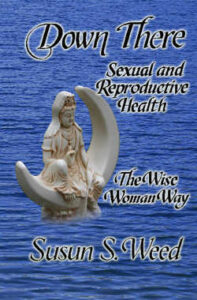
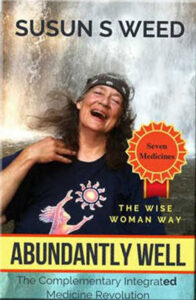



0 Comments